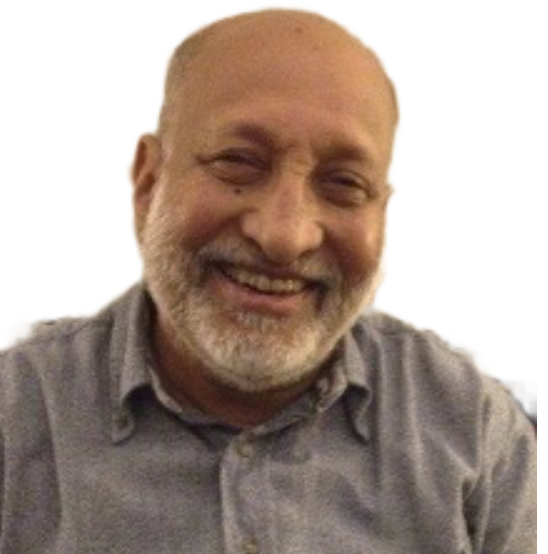PAKISTAN’S REFUSAL TO allow a CIA base in its territory has pissed off the Biden administration. The Americans also resent Pakistan’s close ties to China, their global adversary.
Pakistani Prime Minister Imran Khan has said that, given Pakistani Muslims’ bitterness toward the United States, allowing Americans a base for hostile operations in Muslim Afghanistan would be “suicidal” for his administration.
Islamabad fears a downturn in its relations with Washington, which has almost always been the case after Pakistan failed to comply with a U.S. military or security demand. The worst case, some Pakistanis say, occurred when Pakistan’s first prime minister, Liaqat Ali Khan, decided to get rid of a U.S. military base in Pakistan to avoid antagonizing what used to be the Soviet Union. These Pakistanis link Liaqat’s decision to his assassination in 1951, referred to in declassified U.S. documents. Others, who included former Pakistani prime minister and my mentor Nurul Amin, accused the United States of orchestrating disruptions of Pakistan’s democratic process through its military and bureaucratic elements.
Amin told me in 1969 that the United States had got Pakistan’s second prime minister, Khwaja Nazimuddin, fired by the bureaucrat-turned Governor-General Ghulam Mohammad. Nazimuddin, Amin’s close friend, had refused to join the U.S.-sponsored Baghdad Pact unless the pact had a clause stipulating that America would defend Pakistan against “external threats” (India). My mentor said Gen. Mohammad Ayub Khan, then commander-in-chief of the Pakistan army, had carried the Pentagon’s instruction to Ghulam Mohammad and was sipping tea in Mohammad’s portico when the governor-general fired the prime minister. The governor-general, a titular head of state, didn’t have the constitutional authority to dismiss the prime minister and would not let Nazimuddin convene the parliament (Constituent Assembly) to demonstrate the support of a parliamentary majority behind him. But Gen. Ayub and the military brass signaled to the deposed prime minister that they supported the governor-general’s action.
Former Pakistani Prime Minister Benazir Bhutto wrote in her autobiography that the United States was behind the overthrow and execution of her father, Prime Minister Zulfikar Ali Bhutto, because Z.A. Bhutto had defied Henry Kissinger’s brutal pressure to abandon Pakistan’s nuclear program.
President Biden’s announcement that all U.S. troops would be pulled out of Afghanistan by Sept. 11 has been followed by a dramatic Taliban offensive against the forces of the Afghan President Ashraf Ghani, an American protégé. The George W. Bush administration had invaded and occupied Afghanistan 20 years ago in response to Al Qaeda’s attacks on New York and the Pentagon. Al Qaeda and the Islamic State, which the United States had dislodged from power in Iraq and Syria, have also increased their activities in in Afghanistan. Intelligence officials have told Biden that even though the United States and its allies have “diminished” the militant forces in Afghanistan, they could threaten the U.S. homeland again in about two years. The Biden administration is looking desperately for CIA bases to keep them in check.
Pakistan’s rejection of the CIA base proposal follows a long and devastating “war on terror” in that country, sponsored by Washington. Mostly Muslim Pakistanis have always opposed their country being dragged into a U.S. war against Muslim forces in Afghanistan and Pakistan. Still, Pakistan had to agree to participate in that war after Richard Armitage, then U.S. deputy secretary of state, threatened the head of Pakistan’s intelligence services that America would “bomb [Pakistan] back to the Stone Age” if it did not join the U.S. fight against the Taliban and Al Qaeda. More than 70,000 Pakistanis perished in that war, which was ratcheted up by President Barack Obama (after he had won the Nobel Peace Prize!), infuriating further Pakistanis of all political stripes.
Most Pakistanis, too, feel bitter about U.S. support for each of their four military dictators and America’s hostility to the democratic governments who failed to fulfill U.S. demands. Liaqat Ali Khan, the first Pakistani prime minister, had angered the Harry Truman administration, not only by asking America to pull out its base outside the Pakistani city of Peshawar. Liaqat was friends with then Iranian Prime Minister Mohammad Mosaddeq and had turned down an American plea to pressure Mosaddeq to drop his plans to nationalize the Anglo-Persian Oil Company (predecessor of the BP). In 1953, four months after the Pakistani Prime Minister Nazimuddin had been overthrown, the CIA station chief in Tehran, Kermit Roosevelt, and the U.S. ambassador there, Loy Henderson, openly incited and bribed Iranian army officers and bureaucrats into staging a military coup against the democratically elected Iranian prime minister, whom the Eisenhower administration replaced with the tyrannical dictator Mohammad Riza Pahlavi.
The United States has often had direct links to Pakistani army generals independently of the country’s civilian authorities, but Imran Khan doesn’t seem to be in the danger of being overthrown by a U.S.-sponsored military coup. Khan has been coopted by the Pakistani army generals and is running the country, especially its foreign relations, at the generals’ behest. The Pakistani decision not to have a CIA base was basically made by those generals, who know that a U.S. base could trigger civil unrest in the country.
The Pakistani economy is in shambles, and Islamabad fears that the Americans could deny it the needed economic support and punish it diplomatically and otherwise for rejecting their base request and also for maintaining Pakistan’s historically close relations with China. The Biden administration apparently believes that having had Pakistan’s giant neighbor, India, in its corner in an anti-Chinese alliance (Japan and Australia being the other partners), it can afford to sideline Pakistan. Washington seems indifferent to the possibility of Pakistan joining a growing number of unfriendly Asian countries including China, Iran, Turkey, and Saudi Arabia.
~ Mustafa Malik worked as press secretary and speechwriter for the late Nurul Amin, Pakistani prime minister and vice president.
- Mustafa Malik worked as press secretary and speechwriter for Nurul Amin, a former Pakistani prime minister and vice president. He hosts the blog ‘Muslims and Liberals.’

